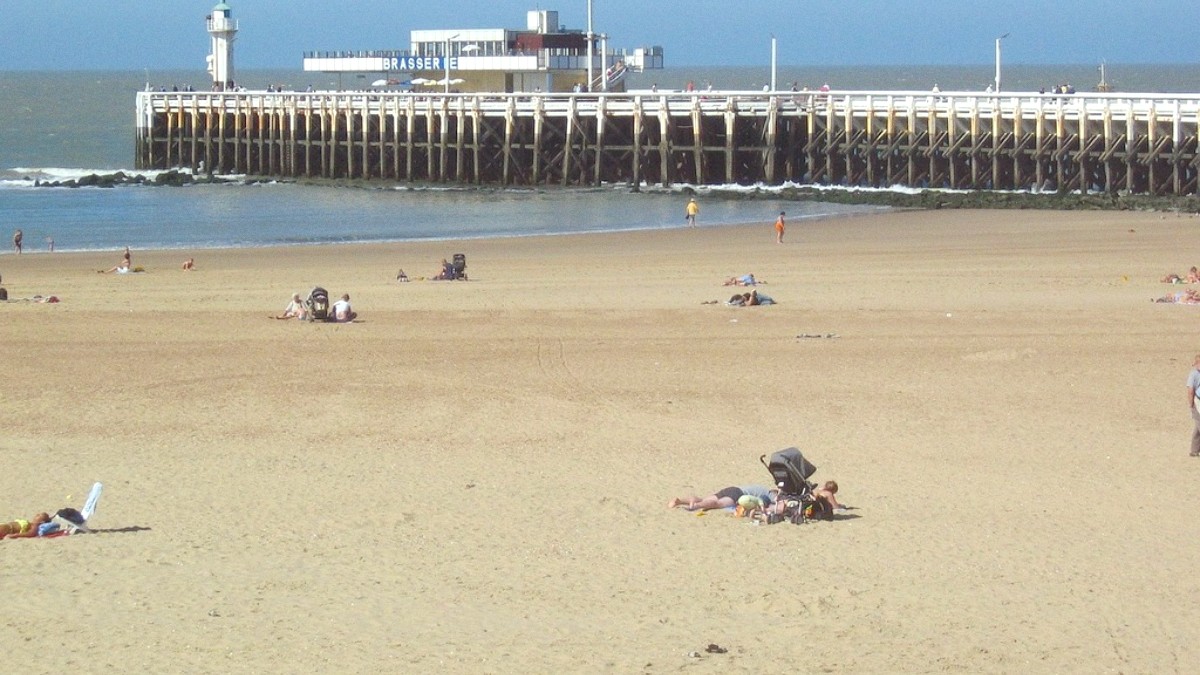
Belgium
Ostend stands apart from typical European coastal towns. It does not rely solely on its beautiful coastline. Instead, it presents a layered experience where urban energy meets seaside serenity. Walk along the expansive promenade, where architectural marvels from a bygone era stand next to contemporary structures. Witness fishing boats dock, bringing in the day's fresh catch, a direct link to the city's lasting maritime heritage. Discover hidden street art murals that transform ordinary walls into outdoor galleries.
You can spend mornings exploring world-class art museums, connecting with the legacy of artists like James Ensor who drew inspiration from Ostend's unique light and character. Afternoons invite relaxation on the beach, perhaps with a classic Belgian waffle or a cone of crispy fries.
Evenings grant a choice of dining, from simple, fresh seafood eateries to sophisticated restaurants, followed by a cultural performance or a quiet drink overlooking the harbor. Ostend is more than a destination for sunbathing. It is a place for immersion, for enjoying genuine Belgian coastal life. Its appeal lies in this combination of natural beauty, urban vibrancy, and a strong sense of its own identity.
Ostend occupies a prime position on the Belgian North Sea coast, serving as the largest city in the province of West Flanders directly on the sea. Its geographical makeup largely shapes its character and climate. The city is built on a flat, low-lying landscape, typical of the Flemish polders, which are areas of land reclaimed from the sea or protected from it by dikes. This flat terrain renders the city and its surroundings suitable for walking and cycling, with extensive networks of bike paths extending along the coast and inland through picturesque rural areas.
The North Sea itself is a defining geographical feature. Its waters directly shape Ostend's climate, granting it a temperate maritime environment. This signifies mild winters and cool summers, with consistent precipitation throughout the year. The sea also grants the city its main economic backbone: a busy port. Ostend's port facilities include commercial docks, a fishing harbor, and a marina, highlighting its continuing role as a maritime gateway. The city's wide, sandy beaches result directly from the coastal geomorphology, shaped by tides and currents over centuries. These beaches stretch for kilometers in both directions, presenting vast open spaces for recreation.
Ostend's location also places it strategically within Belgium. It is well-connected to major inland cities via an efficient railway network.
Bruges, Ghent, and Brussels are short train rides away, making Ostend a convenient base for exploring the wider Flemish region.
This connectivity enables visitors to easily combine a seaside holiday with cultural excursions to historic urban centers. The city effectively acts as a coastal anchor in a region known for its medieval towns and flat, fertile countryside.
The presence of dunes, especially on the Eastern Bank (Oosteroever) and near Raversyde, adds another layer to Ostend's natural landscape.
These protected dune areas act as natural barriers against the sea and serve as important ecological habitats, offering tranquil walking paths and opportunities for birdwatching. This blend of urban development, sandy beaches, working port, and natural dunes creates a diverse geographical profile.
The landscape guarantees Ostend features varied experiences, from relaxing on the sand to exploring coastal ecosystems or traversing the flat interior. Its proximity to other Belgian cities further elevates its appeal as a central point for a broader Belgian adventure.
Ostend offers miles of wide, golden beaches, ideal for strolls and reflection, backed by a lively urban atmosphere.
The city's promenade showcases architectural marvels and contemporary structures, alongside a bustling fishing port and street art.
Ostend's flat terrain and extensive bike paths suit walking and cycling, connecting the city to picturesque rural areas and protected dunes.
Ostend’s history presents a compelling narrative of resilience, transformation, and strategic importance, deeply tied to its coastal position. From its humble beginnings as a small fishing village in the 9th century, Ostend grew into a prominent port and a favored royal resort, enduring numerous conflicts along the way.
In the Middle Ages, its natural harbor fostered trade and fishing, establishing its early economic base. The city's strategic coastal location, however, also made it a target. The Siege of Ostend (1601-1604) during the Eighty Years' War stood as one of Europe’s longest and bloodiest sieges, leaving the city largely destroyed but cementing its reputation for defiance. This event underscores its lasting significance as a defensive stronghold.
The 19th and early 20th centuries marked a period of significant development, with King Leopold II investing heavily in grand architectural projects, earning Ostend the title "Queen of the Belgian Coast."
The 18th century brought economic prosperity, establishing Ostend as a significant port for international trade through the Ostend Company.
Ostend's strategic location made it a focal point in both World Wars, leading to heavy bombing and extensive post-war reconstruction.
Ostend holds cultural importance as the home of influential Belgian Symbolist painter James Ensor. His unique, often unsettling, artworks drew deep inspiration from the city’s light, its carnival traditions, and its people.
Expansive, clean sandy beach, perfect for sunbathing, swimming, or refreshing walks along the promenade.
Explore the Mercator, Fort Napoleon, and Atlantikwall Raversyde for glimpses into maritime and military history.
Visit the James Ensor House museum and Mu.ZEE, or attend performances at Kursaal Oostende.
Ostend delivers a compelling blend of seaside relaxation, rich history, a flourishing arts scene, and delicious local cuisine.
It is a city that welcomes exploration, with a promise of discoveries beyond the obvious.
The city delivers a truly authentic Belgian coastal experience, full of character.
Ostend offers something for a range of travelers, whether you seek historical insights, artistic inspiration, outdoor activities, or simply a relaxed escape by the sea.